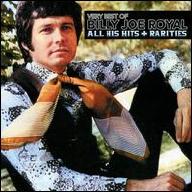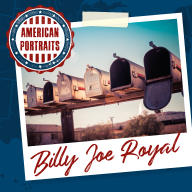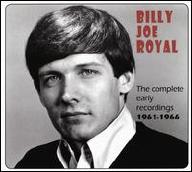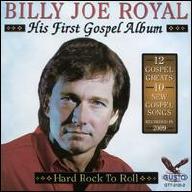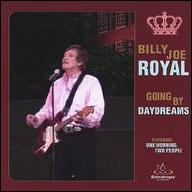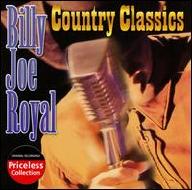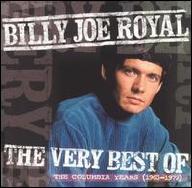Royal was born into a family of musical entertainers in Valdosta, Georgia, and made his debut on his uncle's radio show at the age of 11. He learned to play steel guitar and joined the Georgia Jubilee in Atlanta at 14, performing with Joe South, Jerry Reed, and Ray Stevens, among several other artists. Royal had his own rock & roll band in high school and was regularly singing around Atlanta by the age of 16. He also spent time in Savannah, where he was influenced by African-American vocal styles and began to develop his distinctive vocal sound. Performing at a nightclub that also booked Sam Cooke and other African-American stars, Royal observed their vocal moves and began to practice them on his own time. In 1962, he recorded an independent single that went unnoticed. Royal and South roomed together for a time, and two or three years later South contacted him with a song he wanted Royal to sing as a demo, in the hope that Gene Pitney would record it. Royal flew from Cincinnati (where he was working at the time) to Atlanta and cut "Down in the Boondocks," whose churchy echo resulted from the use during recording of a large septic tank that had been dragged into the studio.
The demo ended up at Columbia, and the label signed Royal to a six-year deal. The song became Royal's breakthrough single, reaching number nine on the pop charts and briefly making the vocalist into a teen idol. Following its success, Royal had a string of lesser hits, including the Top 40 pop singles "I Knew You When," "I've Got to Be Somebody," and "Cherry Hill Park." By the end of the decade, Royal's star waned, and he became a regular performer in Las Vegas and around Lake Tahoe. He also did a bit of acting on television, in feature films, and in commercials. In 1978, he recorded a cover of "Under the Boardwalk" and scored a minor hit.
The wrong-side-of-the-tracks theme of "Down in the Boondocks" was a familiar one to country audiences, and during the early '80s Royal worked on establishing himself as a country artist. In 1984, he broke through when he recorded the Gary Burr composition "Burned Like a Rocket"; it was picked up by the Atlantic label, which signed Royal to a contract. The single became a hit and reached the country Top Ten in early 1986. Over the next two years he had a string of Top 40 hits, breaking into the Top Ten in late 1987 once again with "I'll Pin a Note on Your Pillow." In 1989, Royal released the album Tell It Like Is; the title cut, a remake of the venerable soul standard, became his biggest hit, peaking at number two, while the album itself stayed in the Top 15 for over a year. By 1990, Royal's style of pop-inflected country had been replaced by neo-traditional honky tonk at the top of the charts, and his popularity began to decline. He continued to have minor hits into 1992 and toured into the 2000s. Royal launched a comeback with the 1998 album Stay Close to Home on the Intersound label, following up with the independent release Now and Then, Then and Now in 2001. "I know exactly what George Jones feels. But I know exactly what Ray Charles feels, too," Royal once said, and by the beginning of the new century, a host of reissues of Royal's work testified to his status as a vocal craftsman whose success transcended genre. ~ Sandra Brennan & James Manheim, Rovi


